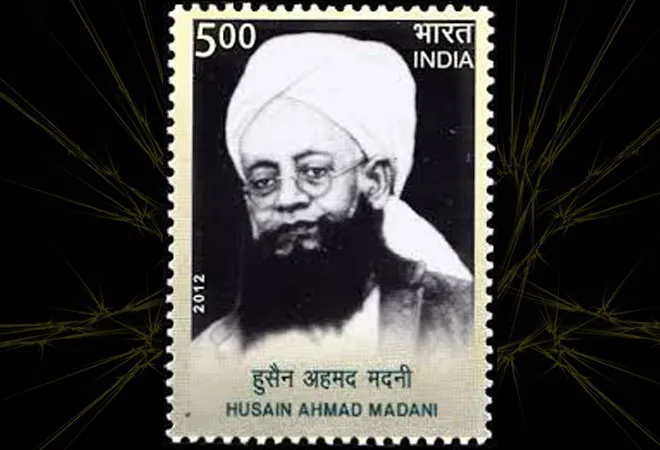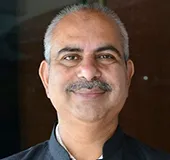
At a time when ISIS (Islamic State in Syria) fighters and leaders are spreading beyond Iraq and Syria to other regions of the world, from Southeast Asia to Africa to the Caribbean, India, hosting the second largest Muslim population in the world, has had negligible exposure to the dreaded and radical ISIS. ORF’s IS tracker project, tracking and studying the activities committed in the name of the ISIS by Indian actors, points at low key presence even though a section of India’s Muslims, misguided or brainwashed, face a potential to subscribe to extremist, violent ideology in the guise of faith. In contrast, there are many more foreign recruits among ISIS ranks. As per US intelligence and CIA reports, there are over 30,000 foreigners, including 3400 from western European countries fighting for the ISIS. From Germany alone, there are over 950 people who reportedly joined the ISIS.
Away from mainstream media glare, a protracted ideological battle is being fought almost on daily basis between radical, fundamentalist organisations like the Popular Front of India (PFI) which, in the guise of human rights, is indulging in many anti-social and anti-national activities. The PFI’s jaundiced views and cult of violent activities is being bitterly opposed by Muslim organisations like Jamiat e-Ulema (Hind) that stands for composite culture and pluralism.
The strong ideological and theoretical foundations of organisations like Jamiat-e-Ulema, firmly rooted in Islam, are acting as a bulwark against the fissiparous tendencies. Jamiat this year is completing 100 years in public life, batting for composite nationalism and rejection of two-nation theory. It had opposed the Muslim League’s demand for Pakistan and since 2001, is effectively using renowned Islamic seminary Dar-ul-Uloom, Deoband to issue comprehensive fatwas declaring terrorism as un-Islamic.
Several research scholars and academicians have recorded Jamiat’s contribution in propagating moderate Islam in India. Call it an irony of fate, that some elements and individuals view Deoband school of thought as a some kind of ideological fountainhead of extremism.
The Jamiat owes its staunch nationalistic flavour to its mentor Maulana Husain Ahmed Madani (1878-1957), a great son of India, scholar of repute who participated in the country’s freedom struggle, was jailed for eight years at home and abroad. Maulana Madani was given the title of Shaikh ul Arab wal Ajam (The sheikh of Arabs and Non-Arabs). One of his famous remarks during the pre-independence India was, “All should endeavor jointly for such a democratic government in which Hindus, Muslims, Sikhs, Christians and Parsis are included. Such a freedom is in accordance with Islam”.
Maulana Madani passionately advocated the idea of composite nationalism and joint struggle of all religious communities against the British and justified inter-communal unity and cooperation on the basis of the Quran and the Hadith (sayings of Prophet Mohammad). At a time when ideas of religion based nationalism were being advocated by the Hindu Mahasabha and the Muslim League, Maulana Madani advanced “the theory of territorial national hood” saying that it is “not necessary that a nation, to be a nation, should share the same religion and culture”. Madani and Muslim clergy of that era were described by Peter Haardy as representing “a sea change in the kind of assumptions Ulama were wont to make about the nature of solidarity of the Islamic community.”
During the turbulent years of 1930s and 1940s, Maulana Madani passionately wrote, argued and campaigned for the position that Muslims could live as observant Muslims in a multi-religious, multi-cultural, pluralistic society where they would be full citizens of an independent, secular India.
Maulana Madani vehemently opposed creation of Pakistan and the logic of two-nation theory. Maulana Madani argued that India had had an Islamic presence from the beginning of human history; that the blessed soil of India was the repository of centuries of deceased holy men; and that India was Indian Muslims’ “only and beloved” home. In his endeavour, Maulana fought with both Hindu right and Muslim separatists giving intellectual and scholarly basis for his line of thinking.
The central theme of Madani’s political ideology was “Mutahaddah Qawmiyat” or mutual co-existence under one nation of Muslims and Hindus with an objective of non-interference in each other’s affairs and mutual respect for each other's traditions and privileges, says Rizwan Malik, who completed his doctorate in 1995 from the Department of South Asian Studies, University of Toronto on “Mawlana Husain Ahmad Madani & Jamiat e. Ulama (1920-1957) and Status of Islam and Muslims in India”. Mutahaddah qawmiyat has also been translated as "composite nationalism".
Madani's criticism of the two-nation theory was based on his assumption that Muslims did not constitute a qawm (nation) different from non-Muslim Indians. He argued that in the Quran and in the practice of Prophet Muhammad, the term qawm had a non-religious connotation. Indian Muslims were part of the world-wide Muslim ummah and could not be restricted to a territoriality based on Muslim nationality.
In the process, Maulana Madani had rather fierce and engaging debate with poet Allama Muhammad Iqbal on whether the identity of a nation depends upon its land or religion.
This was the time Jinnah’s demand for Pakistan and two-nation theory was gaining currency among a section of Muslims. Madani spoke candidly in December 1937, at a political meeting in Delhi, that “In the current age, qaumeen (nations) are based on autaan (plural of watan) (homelands), not religion”. He said people living abroad made no distinction of whether a person was ‘Muslim, Hindu, Sikh or Parsi’, but viewed them as ‘Hindustani’. He reiterated, as he often had before, that all Indians were viewed with contempt because of being in bondage to colonial rule. The following day Urdu newspapers, al-Aman and Ehsaan, (soon followed by others) had reported that Madani had said that not ‘nation’, but millat (a term commonly linked to religious community) depended on territory. Poet Iqbal was quick to dismiss the distinction between millat and qaum as a philological quibble, irrelevant to his fundamental concern. Iqbal had unleashed a war of sorts when he penned a poem "Hussain Ahmad" in "Armaghan-e-Hijaaz’’, his book of verses in Persian saying,
Hanooz Nadand Rumooz-E-Deen, Warnaza Deoband Husain Ahmad! Aen Che Bu-ul-Ajabi As Saroad Bar Sar-E-Minbar Ke Millat Az Watan AstChe Bekhabar Za-Maqam-E-Muhammad Arabi Ast ( Rough translation: The Ajamites (non-Arabs) do not yet know, the fine points of our faith; Otherwise Husain Ahmad of Deoband! What is this foolhardiness? A sermon-song from the pulpit that a nation by a homeland be! From the real position of the Arabian Prophet, how sadly unaware is he!>
Madani responded to Iqbal. He justified his mutahaddah qawmivat on theological grounds, i.e. on Prophet Muhammad's "Covenant" with the Madinites (residents of Madina). The Prophet had defined all Madinites, whether Muslim or non-Muslims as belonging to one community (qawm). Madani regarded it as a legally valid precedent for the justification of Muslim alliance with Hindus in India to confront the British.
Iqbal finally had to accept Madani’s point that a quam includes believers and non-believers. The Prophet, Madani pointed out, had rejected those of his own lineage-like Abu Lahab, who had denied Islam. The Prophet in short was not an Arab patriot but a leader of co-religionists.
Madani was clear in his mind that as per the Islamic principles, it was permitted for Muslims to join hands with non-Muslims and form a sort of united front on the basis of wataniyat (nationalism) nasal (race) rang (colour) or zabaan (language) to defeat a bigger enemy.
In the context of disruption of communal unity, Madani used to often quote Quranic verse Sura-e-Ittesaal which says, “Get ready as many horses and forces against the enemies of Islam so that you may put into them the fear of God and your power.” Madani used to further explain the verse saying, “unity is essential for Muslims of India because Hindu-Muslim unity is the only deterrent for our enemy; only with this at our command can we inspire fear in him and melt his stony heart. As such this unity is not only legitimate but necessary.”
In the independent India, Madani wanted a central law to curb communalism and religious fanaticism. The Muslims, on the other hand, he used to advise, should produce literature in different languages that brings the message of welfare and good of entire humanity. He used to often repeat saying how the Prophet had addressed himself to entire mankind, not to Muslims alone. He stressed the need for reforming textbooks by including in them the description of the cultures and living conduct of all religions and not of one community or sect alone as was the case with existing textbooks.
Madani was all for democratic participation in the electoral process. He said: “In the independent republic of India, election is the final word of government formation. Muslims have made a significant contribution to the making of this decision. It is the obligation of Muslims to realise their own importance and give evidence of being enlightened, patriotic and alive to the national good.”
The life and times of Maulana Hussain Ahmad Madani continues to deeply influence Muslims in India. During the partition of the country, Madani and several other Muslim religious leaders, sufis belonging to various sects and orders, prevailed upon millions of Muslims to stay on in India. Several united province districts bordering with Punjab had substantial Muslim population. Madani and his associates sat on the banks of river Jamuna to prevail upon edgy Muslims not to migrate to Pakistan.
After independence, the new government, led by Jawaharlal Nehru, tried according several honours and recognitions to Maulana Madani such as Rajya Sabha nomination, Padma Vibhushan etc, but Madani politely turned it down and resumed teaching at Deoband seminary. At the time of his death in 1957, the mortal remains of Maluana Madani were draped in tricolours with prime minister Nehru and many of his cabinet colleagues leading the procession. He was accorded state funeral with full honours.
The views expressed above belong to the author(s). ORF research and analyses now available on Telegram! Click here to access our curated content — blogs, longforms and interviews.




 PREV
PREV


